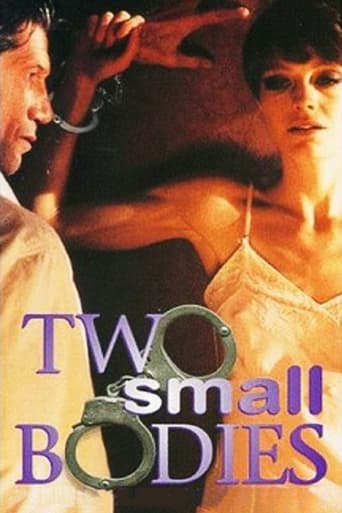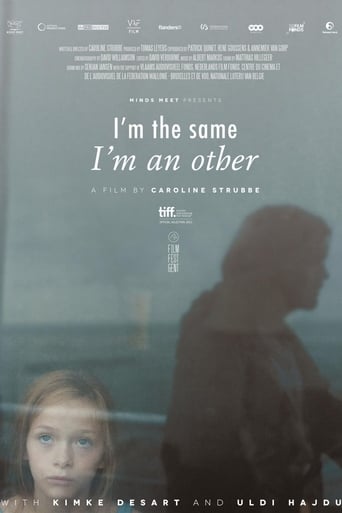

The Tempest (2010)
An adaptation of the play by William Shakespeare. Prospera (a female version of Shakespeare's Prospero) is the usurped ruler of Milan who has been banished to a mysterious island with her daughter. Using her magical powers, she draws her enemies to the island to exact her revenge.
Watch Trailer
Cast


Similar titles
Reviews
It has to be reckoned something of an achievement for Taymor to have delivered such a reverse reading of this play. Prospero is Shakespeare's autobiography, and he is not a woman. The island landscape here is barrenly lunar, Icelandic even, rather than mysteriously magical. Caliban should be a Carib, not an African, in spite of being the son of Sycorax of Algiers. Ariel seemed reasonably impressive to me, but the best part was delivered by Felicity Jones as Miranda, as the fifteen year old being introduced to adulthood. But the shipwrecked crew do not exactly represent a brave new world to me. Brand and Molina are not funny in the slightest, but then few of Shakespeare's clowns raise a smile these days. Ferdinand is a complete non-entity. It was disconcerting to recognise (just) Tom Conti. Mirren was not really at her best. The play resembles many of Shakespeare's works in that it is positively stuffed with quotations, familiar to anyone with anything approaching a halfway reasonable education. Still, I must admit that I followed the action with some interest, and was engaged by a desire to discover what would unfold. An oddity, not without merit. The extra feature was worth while.
Evil monsters, witches, nature spirits, dashing princes, and damsels in distress: sounds like all the appropriate ingredients for every beloved fantastical tale we read as children. But a children's story, this is not. Julie Taymor's 2010 film adaptation of Shakespeare's The Tempest is chock full of those deep, dark questions we, as adults, struggle within the scope of our lives. In a new spin on an old classic, Taymor makes us question our personal family ties, loyalty, revenge, and forgiveness. This modern film stayed to Shakespeare's iconic tale of aristocratic parent and child exiled from their home by an ambitious relative. They are washed up on a mysterious magical island after enduring a cataclysmic storm. For nearly twelve years the pair must establish civilization, making both friend and foe along the way. Also, the language stayed very true to the original Shakespearean. While some may assume this would inhibit understanding the film, the storyline was very simple to follow because of the brilliant acting, camera work, costumes, and set design. I would be completely remiss if I did not note the most strikingly obvious deviation Taymor made from the original: Prospero becomes Prospera. That's right, instead of being shipwrecked with her father for her entire life; Miranda is accompanied by her mother. The mother-daughter dynamic puts an entirely different spin on all of the interactions these two characters share. A shrewd mother who tests a potential suitor for her daughter in hopes to find a good match for her daughter is much more believable to a modern audience. We come from a world where fathers are often depicted as extremely reluctant to release their hold of protection over their daughters to a potential male companion (very different in Shakespeare's time). Mothers are often the natural buffer to allow this transfer to occur. It was brilliant to see Helen Mirren fulfilling the strong emotional role as both father and mother to Miranda's character, another theme very accessible to viewers today. Another character that has always eluded readers is that of the indefinable Caliban. Every stage and film adaptation of this play chooses to depict our menacingly evil, or perhaps tragically misunderstood, antagonist. Usually Caliban bears some resemblance to a savage beast, as he is the offspring of a malevolent witch. Djimon Hounsou was an exceptional casting choice for Caliban, as he flawlessly portrayed the tortured soul of his character. The costuming choices were also brilliant, as Caliban's conflicted nature was captured by depicting him as multi-racial (covered in patches of every shade of skin tone), two differently colored eyes, and scantily clad in an indigenous looking loin cloth. The camera work and set design were also breath-taking, as the beauty of an exotic Mediterranean island was perfectly captured. Frequent use of wide camera angles to capture the sheer majesty of the island allowed the audience to believe that magic truly could exist in a place like this. And within an instant we saw this tropical dream paradise change into a raging, torrential nightmare as the tempest moved in. Overall, Taymor achieved an excellent balance of making tribute to a timeless Shakespearean classic, while still adapting certain aspects of the tale to appeal to modern audiences. And if at any point you may feel daunted by the deep philosophical questions or challenging Shakespearean language this film possesses, don't fret. At any moment, a hilariously intoxicated Russell Brand, as Trinculo, will be popping out from around the corner to provide some hysterical comic relief!
I am not a fan of male characters in Shakespeare being played by women, although it is only fair when you remember that when first written, all parts were played by men. However, I thought Helen Mirren did a brilliant and believable piece of work. At least the text had been adapted to reinforce the fact that she was female and we weren't expected to believe that she was Prospero and not Prospera. I thoroughly enjoyed this screen adaptation and although scenes that I looked forward to were cut out e.g., the Goddesses at the feast, the CGI was very clever. I thought that it was a mistake to make the casting of Caliban an African man, although he was disguised with scales and what looked like vertiligo. The purists see this play as about man's fear of anything different,(the other) and this plays into the post colonial criticisms by making the man black. Although Ben Wishaw did a sterling job as Ariel, it was a bit disconcerting to see his thin body running around naked. Especially at the beginning when he had to lie about with his leg discretely crossed in case he revealed anything he shouldn't. However, having acted in this play and seen several versions this was one of the best.
To give a review about any Shakespearian adaptation, we must begin with the faithfulness of the movie.This movie is completely faithful to the play and has all the major points of the plot. The dialogue is also Shakespearian and again faithful (except the parts that have to be changed because of "Prospera"). All in all, this movie conveys the spirit of Shakespeare's play.And I loved the comic scenes with Trinculo, "King" Stephano :D and Caliban. They really made me laugh in a scene when the third meets the first two.The only flaw is what all of us know. Why should Prospero become Prospera???!!! That is the question that can't be answered easily. That may be because the director is a woman and wants to show "Female Authority" (a term used frequently in Feminist texts). Because of this change of gender, some dialogues have to be changed too. And of course the mother/daughter relation is different from Father/daughter. That is, I believe, the only flaw in this movie (making my score 8 rather than 10).Other than this, everything is perfect.My Score: 8/10














